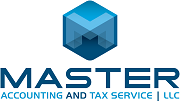Mastering Your Business Tax Returns: Strategies for Success
Filing a small business tax return is far more complicated than filing an individual tax return.
In fact, 80% of small business owners feel stressed during tax season.
To make this time of year manageable, it’s important to know the strategies you can implement for success.
The strategies involve following the correct steps it takes to file business tax returns.
It’s time to become the master of tax returns.
Keep reading to learn what you should be doing to prepare.
Gather Documents
If the idea of filing your business taxes has you stressing to the max, start alleviating the stress by getting organized.
The best strategy for beginning the process of filing business tax returns is to gather the necessary documents.
Filing taxes depends on your business structure and the information you have.
You’ll want to have your financial records and taxpayer identification number (TIN) available.
These reports are easy to find if you’ve been tracking your business records throughout the year.
Using accounting software is a great way to stay organized.
If you use spreadsheets or a professional accountant, request the documents you need ahead of time.
To prevent scrambling during tax season, keep your books updated.
Creating monthly reports is a great way to keep track of business records.
Outsourcing bookkeeping services can keep you productive with other business tasks while leaving the numbers to the professionals.
Financial Records
Complete financial records such as financial statements and supporting documents are required for tax filing.
These statements accurately report your business income and expenses.
Gather these records to adequately fill out your business tax return:
- Revenue reports
- Income and expense statements
- Credit card bills
- Customer invoices
- Payroll data
- Balance sheet
- Receipts
Receipts are supporting documents that are just as important as the necessary records.
These documents can back up the claims on your tax return in case you get audited.
Taxpayer Identification Number
To identify your business on your tax return, you have to include your nine-digit taxpayer identification number.
If you can’t find your tax identification number, look through old documents that could contain your TIN such as past tax statements and returns.
Contact the IRS if you still cannot find it.
Determine Your Business Structure
With your paperwork ready to go, you need to know how to file.
Businesses won’t use the individual Form 1040 that people use to file their taxes.
The forms you need will depend on your business structure.
Determine whether your business is a:
- Sole proprietorship
- Partnership
- Corporation
- Limited liability company (LLC)
Sole proprietors use Schedule C, Profit or Loss From Business.
You can attach this form to your personal income tax return.
Partnerships use tax return Form 1065, U.S. Return of Partnership Income.
This form has to be filed by the partnership and all members of the partnership with their individual taxpayer forms.
Partnership businesses must distribute Schedule K-1, Partner’s Share of Income, Deductions, Credits, etc., to every partner.
You’ll use Schedule K-1 to complete a portion of your Form 1040 as well.
A majority of corporates use Form 1120, U.S. Corporation Income Tax Return.
This is also known as the C Corp tax return.
An S Corporation uses Form 1120-S, U.S. Income Tax Return.
It’s important to know the difference if you want to successfully file business taxes.
If you have an LLC, you should have chosen how you wanted to be taxed when you set up your business.
If you chose to be taxed as a corporation, you will use Form 1120.
Single-member LLCs will file Schedule C while muli-member LLCs file Form 1065.
Know the Deadlines
Once you complete your tax forms, you have to file through the IRS before the deadline.
Your tax filing due date will also depend on your business structure.
There are specific dates for filing taxes, but these dates sometimes fall on a weekend or holiday.
If this is the case, the deadline is the following business day.
Partnerships and multi-member LLCs are required to file their forms on March 15th and must distribute the Schedule K-1 to partners.
S Corps must file Form 1120-S on this day as well.
April 15 is the common tax date most people recognize.
Sole proprietors, single-member LLCs, and corporations that end their year on December 31st must file their taxes by this date.
If your corporation ends the tax year on a date other than December 31st, your due date is the 15th day of the fourth month after the end of your tax year.
If you need to push back the tax return deadline, consider filing for a business tax extension.
If you are unable to pay your business taxes, connect with the IRS to make arrangements.
Use the Correct Filing Method
Paying taxes is easier than ever with e-filing systems.
However, you can file your business tax return by mail if you prefer to.
Depending on your business, you might be required to file your taxes online.
You can make payments for the different types of taxes through the Electronic Federal Tax Payment System (EFTPS) on the IRS website.
Filing online is typically the preferred method because you don’t have to fill out paper forms and your tax return is sent to the IRS faster.
You’ll also be able to receive your refund, if eligible, electronically through direct deposit.
Filing online is secure and safe.
If you have a complicated tax history, you might need to hire a professional to help with the filing process.
Filing Business Tax Returns Successfully
To successfully file business tax returns, you need to know these strategies.
Gather your financial documents, find the correct forms for your business structure, know the deadlines, and use the correct filing method.
When you do all of these things, the tax filing process will be much easier.
If you have a complex tax situation, consider hiring the professionals at Master Accounting and Tax Service.
Our mission is to prepare clients for tax season and other financial endeavors through quality accounting, bookkeeping, and tax services.
Ready to get started?
Fill out our form to connect with us today.
Seeking expert tax preparation and accounting services? At Master Accounting and Tax Service, we specialize in providing top-tier accounting, tax, bookkeeping, and fractional CFO / controller services at an affordable cost and with the utmost integrity. Call (480) 456-4999 or Contact us today!












